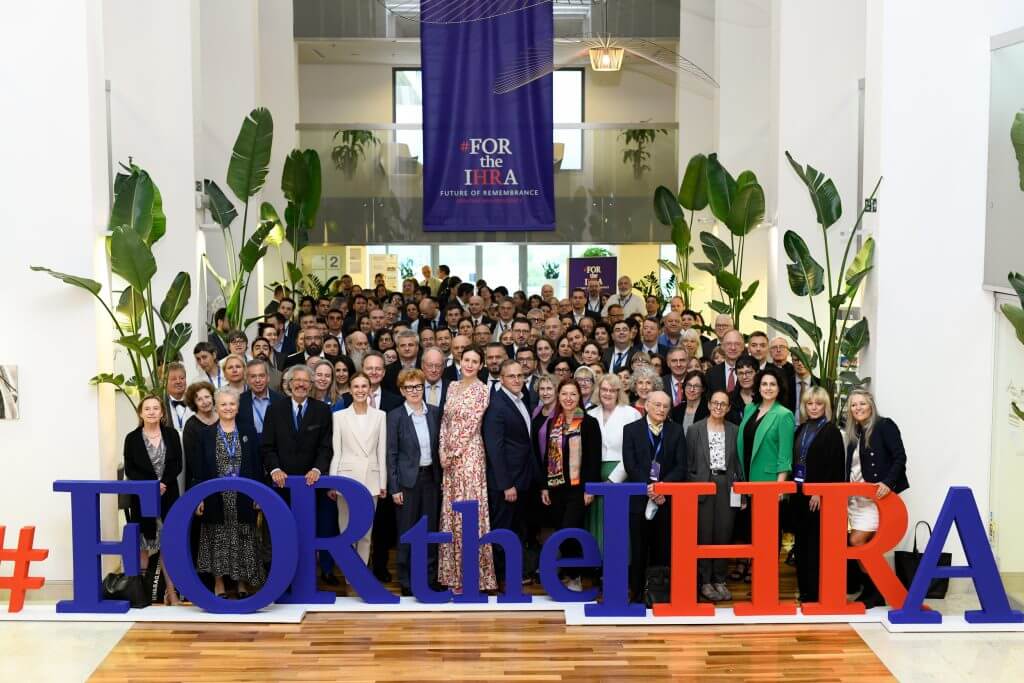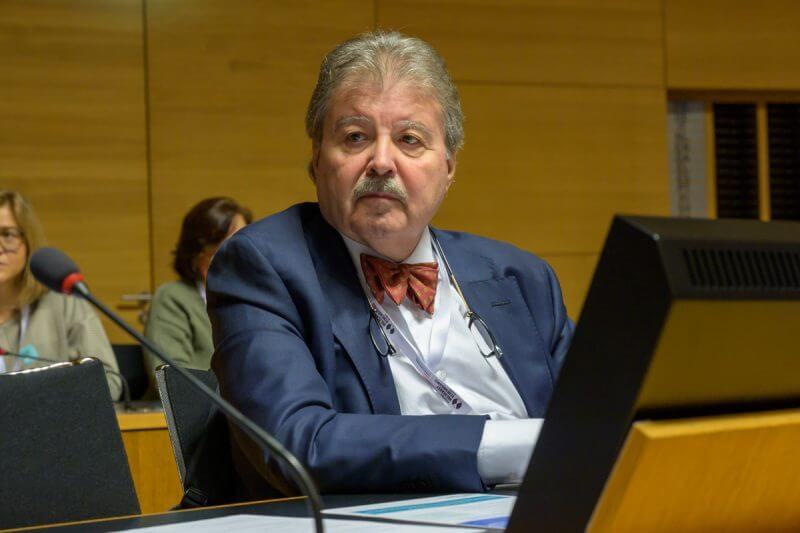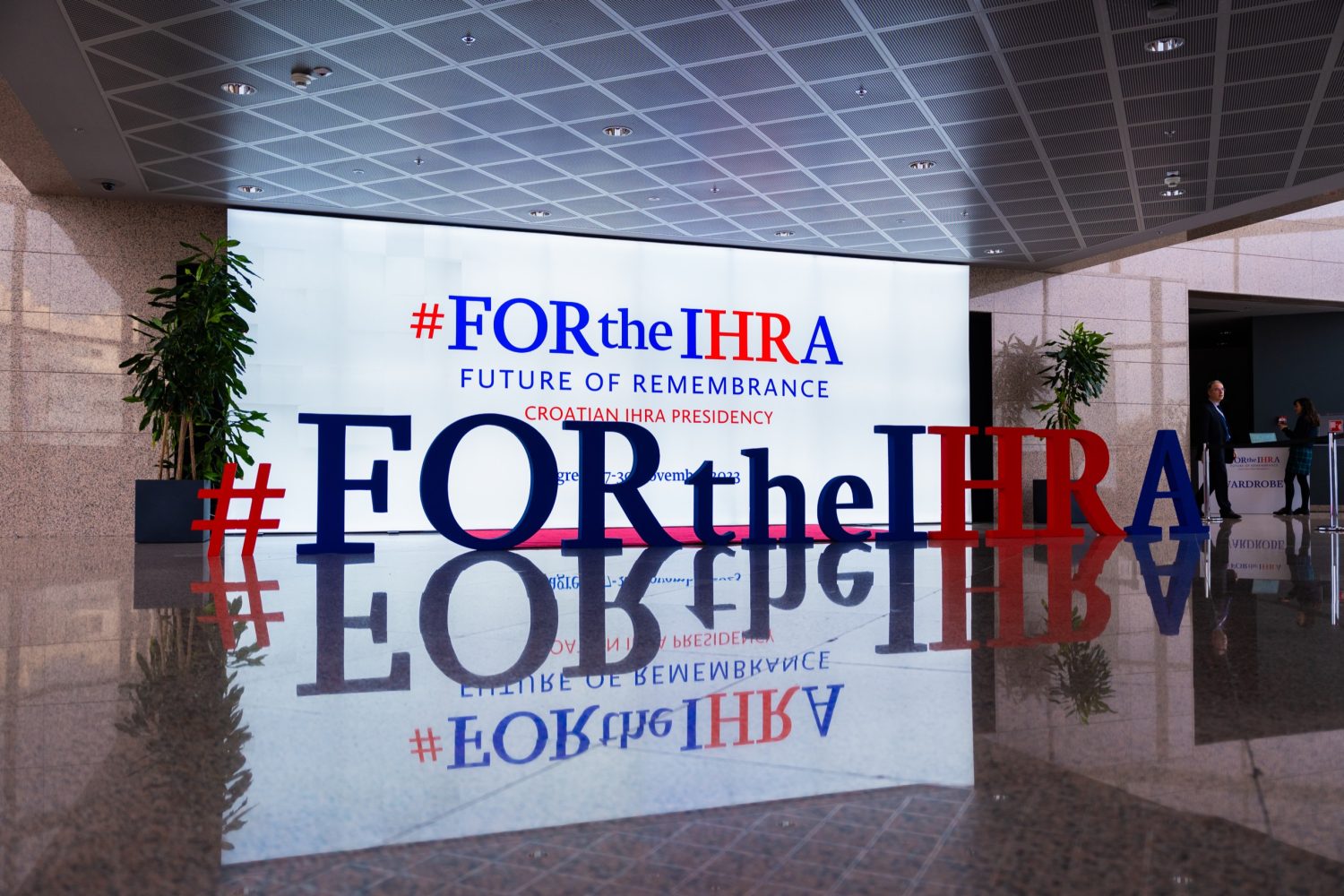


Honoring Professor Yehuda Bauer at the Dubrovnik Plenary
Professor Yehuda Bauer passed away in October 2024 at the age of 98. As Honorary Chairman, his influence shaped the organization’s work in Holocaust education and remembrance, leaving a lasting impact on the IHRA and its ongoing efforts. His moral guidance and leadership were central to the IHRA’s mission, and his legacy continues to inspire us.
DUBROVNIK, 15.06.2023: The International Holocaust Remembrance Alliance (IHRA) has successfully concluded its first Plenary Meetings under the Croatian Presidency, which took place over four days in the city of Dubrovnik. The meetings, attended by experts, political representatives, and representatives of international organizations and civil society, inspired exchanges and developments in the field of Holocaust remembrance, education, and research with a focus on securing the future of remembrance for generations to come.
The Dubrovnik Plenary marked the retirement of IHRA Honorary Chair, Professor Yehuda Bauer, at the age of 97. He was one of the founders of the IHRA and the author of the 2000 Stockholm Declaration. World leaders from Croatia, the founding countries of the IHRA, and Professor Bauer’s home country sent messages of gratitude and admiration, underlining the impact of Professor Bauer’s work.
The Croatian Prime Minister, Andrej Plenković, opened the special session by highlighting the need to “ensure that we continue to live up to the IHRA’s moral foundations and carry the torch that Professor Bauer so generously hands over to all of us today.”
President of Israel, Isaac Herzog, stated that it was a “daunting task indeed, to attempt to summarize the contribution of a man who is, quite simply, a living legend.”
United States Secretary of State, Antony Blinken sent a letter thanking Professor Bauer for “being an example we all want to emulate: someone who speaks the truth about the darkest chapter of our history, and someone who teaches us to look forward as we learn from looking back.”
Prime Minister of the United Kingdom, Rishi Sunak, expressed in writing that Professor Bauer “infused the IHRA’s deliberations with a constant sense of the gravity and urgency of its work.” His Majesty King Charles III sent a personal letter to Professor Bauer, expressing admiration for his life’s work.
The Minister for Culture in Sweden, Parisa Liljestrand sent words of admiration for Professor Bauer’s commitment to combating antisemitism. Former Prime Minister of Sweden, and one of the founders of the IHRA, Göran Persson gave a special video address, describing his decision to invite Professor Bauer to become the Advisor to the IHRA as “perhaps the best thing” he had ever done, because Professor Bauer “created both an academic framework, but also a friendly intellectual atmosphere that made it possible for us to discuss the worst crime against humanity ever.”
Professor Bauer’s legacy was secured by IHRA members deciding to establish a Professor Yehuda Bauer Grant aimed at supporting research on the Holocaust and antisemitism, hosting a symposium on the same topic later this year in Israel, and inviting the Global Action Against Mass Atrocity Crimes (GAAMAC) to become a Permanent International Partner of the IHRA. These important steps help secure the IHRA’s – and Professor Bauer’s – vision for a world that remembers the Holocaust. A world without genocide.
Other exciting developments at the Plenary included the decision to reopen the IHRA grant program after it was paused for a successful review and revision process. In view of the anticipated adoption and launch of the IHRA Safeguarding Site’s project’s Charter for Best Practice, and the partnership with the European Commission on the upcoming Network of Sites, the Plenary decided to allocate funding to develop an IWalk in Brussels for International Holocaust Remembrance Day 2024.
The Croatian Minister of Culture and Media, Nina Obuljen Koržinek, welcomed IHRA delegates to the city of Dubrovnik for an evening reception at the Rector’s Palace. There, she pointed out the inscription above the building, Obliti privatorum, publica curate, which serves as a reminder of the responsibility to give priority to common, rather than personal, interests, an important message for those who believe in the goals of the IHRA.
Deputy Prime Minister of Croatia, Davor Božinović, hosted a gala dinner for delegates, where he congratulated the IHRA on its work towards safeguarding the record of the Holocaust and genocide of the Roma, and countering distortion.
IHRA Co-Chairs Ambassador Terezija Gras and Sara Lustig highlighted the need to put words in to action to secure the future of remembrance and reminded delegates of Professor Yehuda Bauer’s words from 2006: “If we struggle for a slightly better world we will succeed. We must not stop struggling; it is worth a lifetime’s effort.”



